

Rod Bourke, NSW Bee Biosecurity Officer, discusses the importance of mite surveillance. Read more
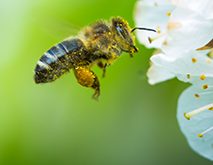
The Honey Bee Health Survey 2019 was designed to provide a snapshot of bee health in the Australian honey bee industry, focusing on issues such as pests and diseases and pollination. Following on from the 2018 Honey Bee Health Survey, the survey examined the level of biosecurity awareness amongst Australian beekeepers, including knowledge of pest […] Read more
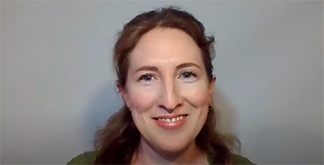
Earlier this year, Queensland Bee Biosecurity Officer Rebecca Laws presented a series of webinars covering a wide range of bee biosecurity topics like how to check your hive for pests and diseases. The webinars were recorded and are now available to watch on the Biosecurity Queensland YouTube channel and below. Ants, waxmoth and hive beetle This […] Read more
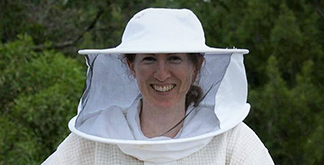
This update from the Queensland Bee Biosecurity Officer Rebecca Laws gives an overview of her main activities since early 2020. Bee Biosecurity Roadshow During February, I took to the road to deliver the Bee Biosecurity Roadshow to spread bee biosecurity messages throughout Queensland. Travelling up the coast from Brisbane to north Queensland, I visited […] Read more
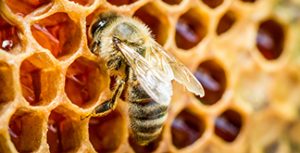
The Biosecurity for Beekeepers online course is now free for all Australian beekeepers, increasing the accessibility of training which will help protect the honey bee industry from pests and diseases. Trevor Weatherhead, Chair of the Australian Honey Bee Industry Council (AHBIC), said the course was previously only free for commercial beekeepers who had 50 or […] Read more
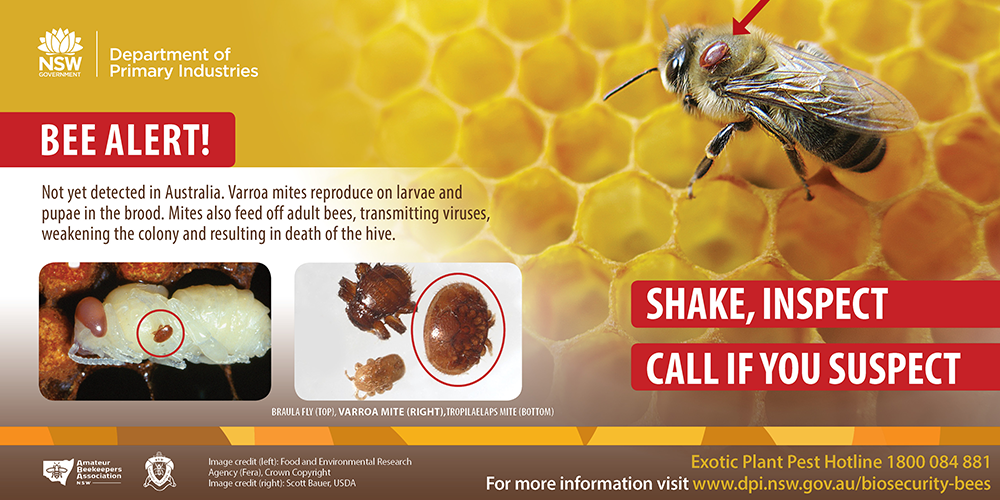
April is Sugar Shake Month, a joint initiative between NSW DPI, Amateur Beekeepers Association NSW, NSW Apiarists Association and the National Bee Biosecurity Program to promote awareness and surveillance for exotic bee mites in Australia. During April, all beekeepers are encouraged to perform a sugar shake test and submit their results to the NSW DPI. […] Read more
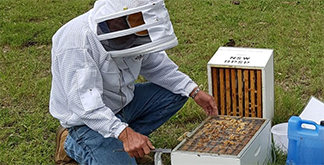
The Buzz with Rod Bourke Despite a reasonable spring, many parts of NSW are facing a tough outlook for the next 3-6 months. It is important to prepare your hives adequately now so that they can idle along with as little stress as possible. Ensure hives have a good store of honey (at least 15-20kg) […] Read more
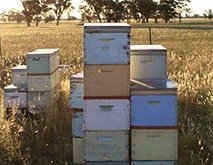
Hiveminded with Mark Page Complaints about nuisance bees have risen over the past few months due to the impacts of drought and fire on floral resources and water. A common cause of complaints is bees foraging for water. Providing water in your yard for bees can be as simple as a bucket with a towel […] Read more

Last year’s survey looked at the biosecurity awareness of Australian beekeepers, including pest and disease symptoms, and the Code of Practice. Read more
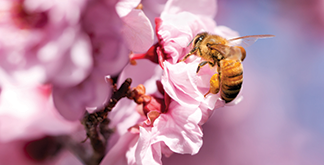
A short survey has been developed to find out how healthy Australian honey bees are, and what pests and diseases might be causing problems for beekeepers. Read more
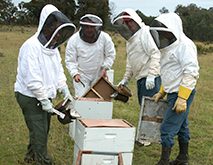
It’s that time of year again. NSW DPI is asking beekeepers to inspect their hives and work together to minimise the occurrence of American foulbrood (AFB) in NSW hives. What is AFB? AFB is a fatal and incurable disease of European honey bees caused by the bacterium Paenibacillus larvae. The bacterium kills the bee larvae […] Read more
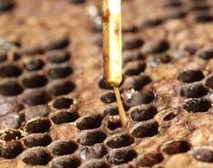
PIRSA Biosecurity SA is reminding beekeepers to be on the lookout for American foulbrood (AFB) following a detection in hives in the Mount Barker area. AFB is a notifiable bacterial disease that kills honeybee brood, resulting in the weakening and eventual death of affected hives. General Manager of Plant and Food Standards at Biosecurity SA, […] Read more
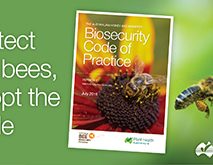
The Australian Honey Bee Industry Biosecurity Code of Practice sets requirements for beekeepers that provide a framework for implementing biosecurity best practices. The Code is part of the National Bee Biosecurity Program and was developed by Australian Honey Bee Industry Council (AHBIC) in collaboration with state and federal governments. Recently, Peter McDonald, the Chair of […] Read more

Please take the time to complete the Honey Bee Health Survey 2018. A short survey has been developed to find out how healthy Australian honey bees are, and what pests and diseases might be causing problems for beekeepers. The results from the survey will be used to decide what help beekeepers might need to keep […] Read more

Commercial beekeepers with more than 50 hives can register for a free online biosecurity course on activities to prevent the spread of pests and diseases in their hives. The Biosecurity for Beekeepers course, which takes about 90 minutes to complete, covers: checking hives for pests and diseases identifying exotic and established pests and diseases of […] Read more

NSW Department of Primary Industries (DPI) has declared American foulbrood (AFB) Awareness Month this October to help keep local bee hives healthy and productive. DPI plant biosecurity prevention and preparedness manager, Chris Anderson, urged beekeepers across the state to look for symptoms of AFB and take prompt action. “If there are signs of AFB, dark […] Read more
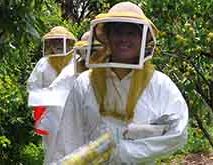
Bee Biosecurity Officers have been busy over the last few months, taking part in Exercise Bee Prepared, as well as compliance and surveillance operations, and going to industry meetings and field days. Encouraging beekeepers to follow best management practices for diseases like American foulbrood continues to be a major focus. The officers are also talking […] Read more
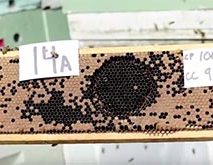
In the latest best practice video developed by the Honey Bee & Pollination Program, one of Australia’s most respected apiarists has encouraged honey producers to adopt rapid hygienic behavior testing in an effort to limit pest and disease incursions. In the fifth episode in the series, Lindsay Bourke from Australian Honey Products in Launceston, Tasmania, […] Read more
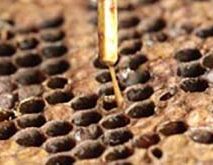
Beekeepers have been urged to look out for discoloured brood and dead larvae, both symptoms of NSW’s most serious brood disease of honey bees, American foulbrood (AFB). The NSW Department of Primary Industries (DPI) today declared October as AFB Awareness Month – a month-long campaign dedicated to educating beekeepers across the state about the fatal and […] Read more
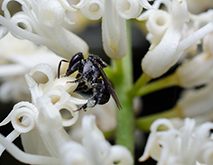
Improving macadamia tree yields by more than 50 per cent could be achieved by alternating varieties in rows and increasing pollinators, new research suggests. For the study – funded by Hort Innovation and Plant & Food Research and the Australian Macadamia Society (AMS) – researchers conducted a trial in a Bundaberg orchard which investigated pollination […] Read more